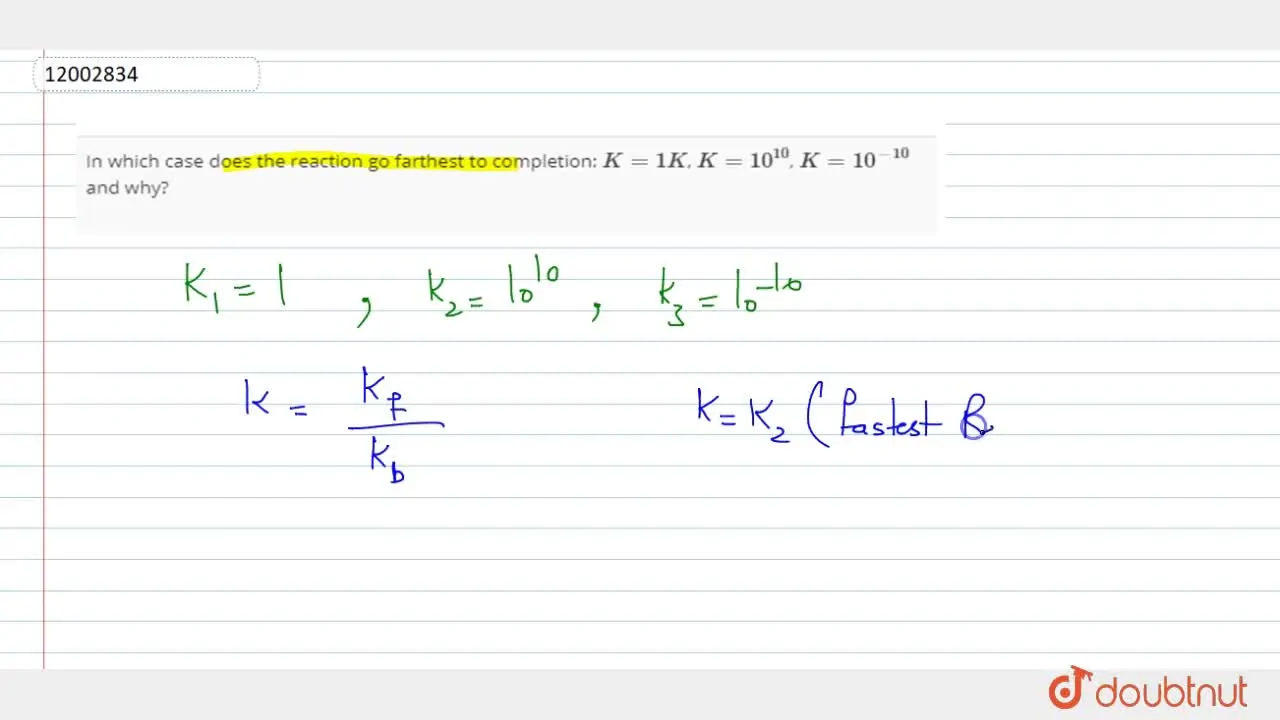In which case does the reaction go farthest to completion: K=1K, K=1010, K=10−10 and why?
The ratio [Product][reactant] is maximum when K=1010 and thus, reaction goes fathest to completion when K=1010
Related Playlists
Similar Questions
In which case does the reaction go farthest to completion: K=1,K=10−10, and why?
View Solutiona. For which of the following reactions, Kp is equal to Kc ?
i. H2+I2⇔2HI
ii. N2+3H2⇔2NH3
iii. PCl5⇔PCl3+Cl2
b. For which of the following cases does the reaction go garthest to completion:
K=1,K=1010,K=10−10?View SolutionFor which of the following cases does the reaction go farthest to completion K=1,k=1010,K=1−10 ?
View Solutiona. For which of the following reactions, Kp is equal to Kc ?
i. H2+I2⇔2HI
ii. N2+3H2⇔2NH3
iii. PCl5⇔PCl3+Cl2
b. For which of the following cases does the reaction go garthest to completion:
K=1,K=1010,K=10−10?View SolutionFrom the values of the equilibrium constants, indicate in which case, does not reaction go farthest to completion :
K1=10−10,K2=1010,K3=105.View SolutionIn which of the following case does the reaction go farthest to completion?
View SolutionIn which of the following case does the reaction go farthest to completion?
View SolutionIn which case does the reaction go farthest to completion ?
(i)K1=1015 , (ii)K2=103 , (iii)K3=10−5 ?View SolutionEquilibrium constants for four different reaction are given as K1=106,K2=10−4,K3=10, and K4=1. Which reaction will take maximum time to attain equilibrium?
View SolutionThe equilibrium constants for the reaction Br2⇔2Br
at 500 K and 700 K are 1×10−10 and 1×10−5 respectively. The reaction is:View Solution


